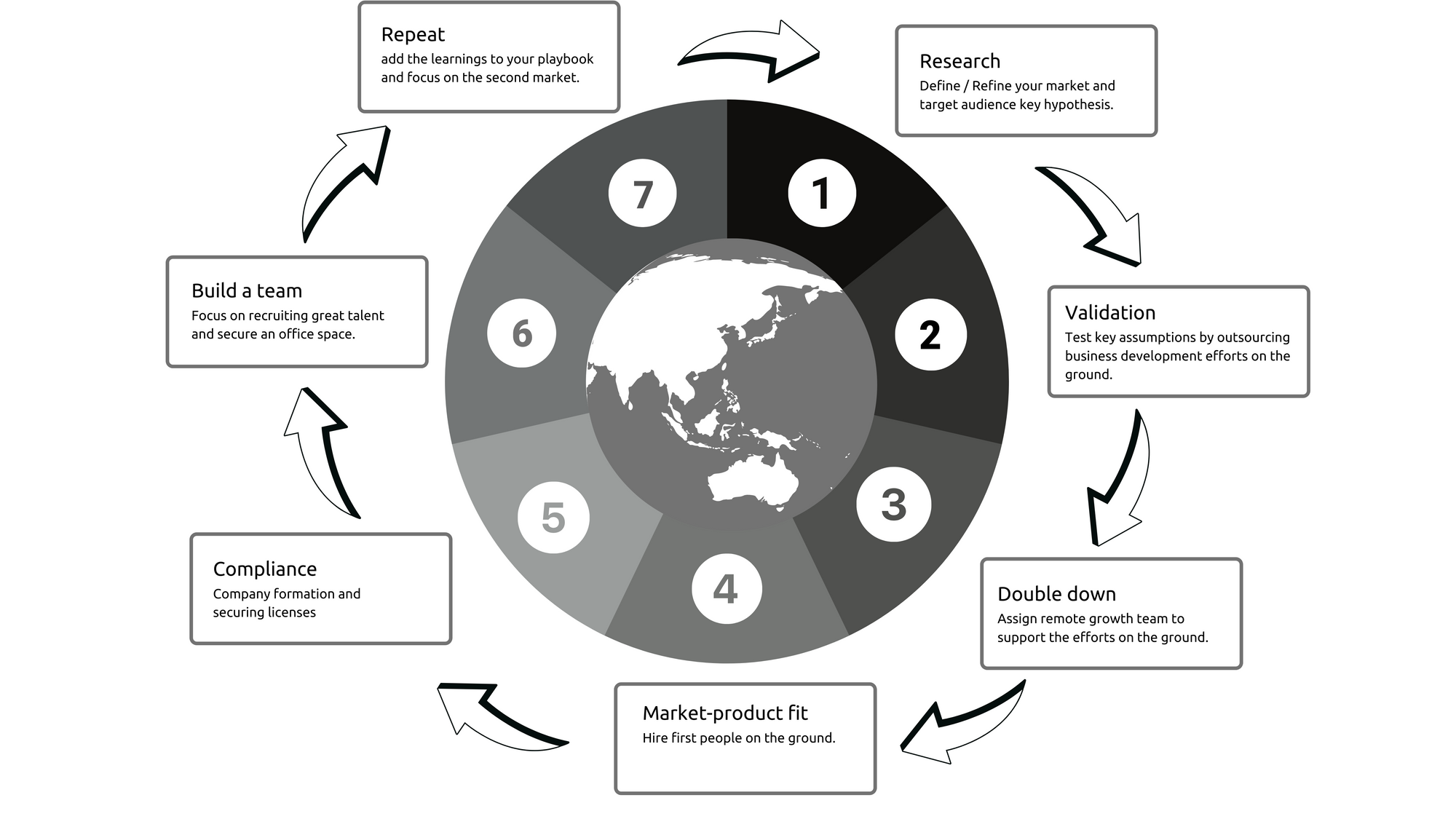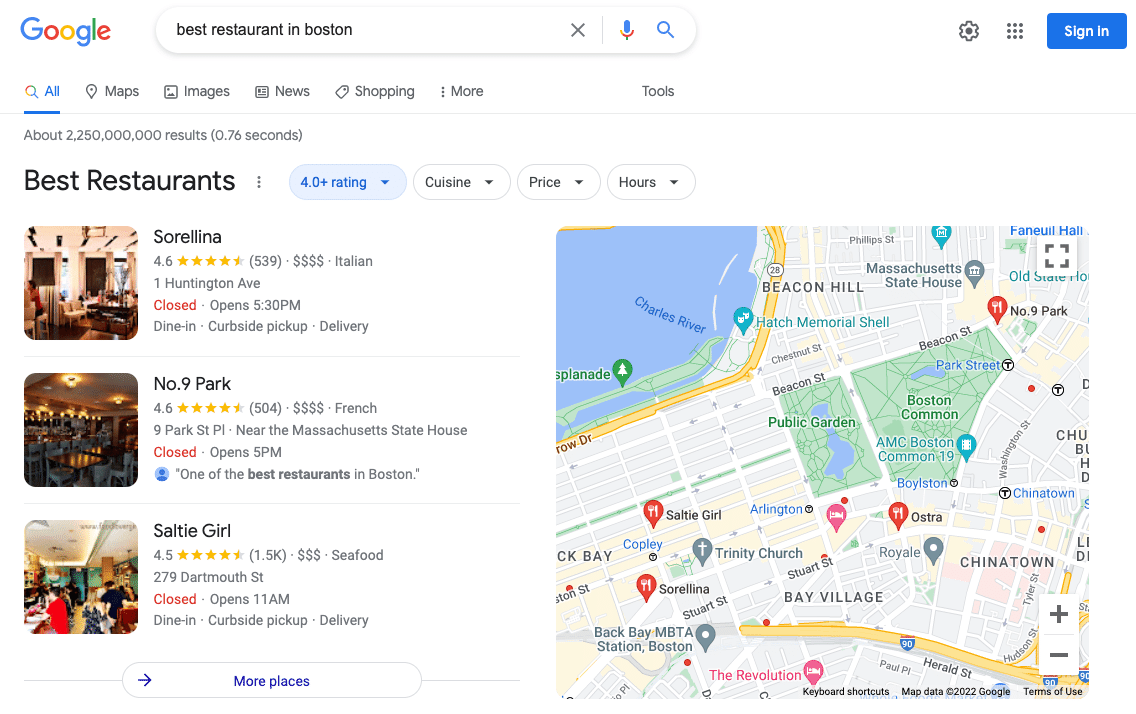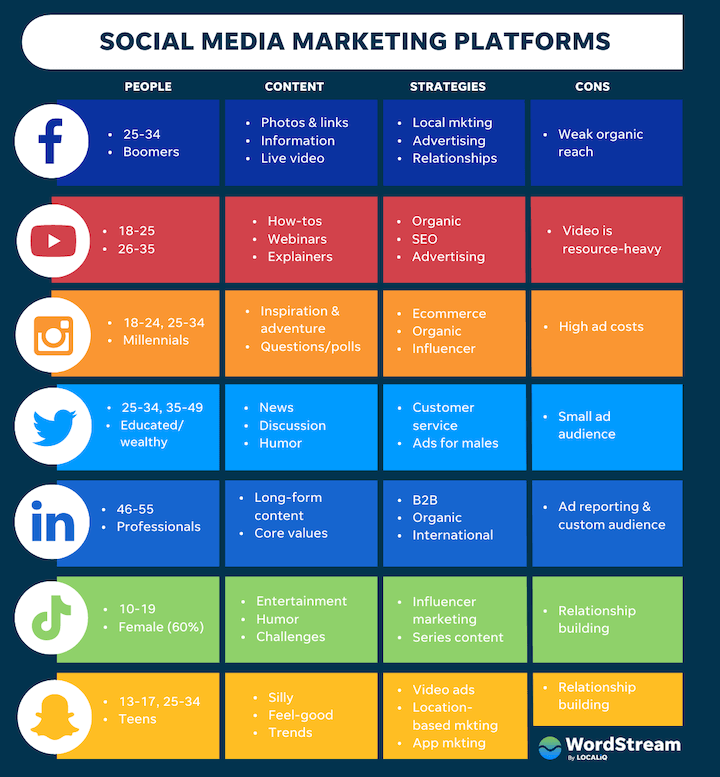It makes sense that businesses that are successful enough to grow to the level of an enterprise can one day go international.
For the business owner, it is an exciting and intimidating prospect. You have the chance to bring your brand, and your offerings, to customers in different countries.
On the one hand, this effort will be about replicating the success you have had in your home country.
On the other hand, marketing yourself in the United States will be different from marketing yourself in France, Germany or Australia.
Your website will play a big role in serving your international clients, which means that international SEO is needed.
At the most basic level, the practice of international SEO means targeting specific countries and languages on your website.
But it’s not enough to just have those pages there for international users to find. How will you optimize for better placement and visibility on Google and other search engines?
Make sure you are focusing on these 4 fundamental areas of international SEO to give your site the best possible chance in new markets.
1. Establish The Right URL Structure For International Pages

Large-scale businesses and websites will have a ton of pages, probably hundreds or thousands. When you are in the e-commerce marketplace, those product and category pages add up quickly.
One of the first steps you can take if you want users in another country to find what they want on your website is to build your international pages for the right audience using the appropriate URL structure. coded by country.
Say you are an online consumer electronics retailer based in the United States, and you have done research to show that you can increase your profits if you expand into the UK market.
You’ve already done all the SEO for your US-based pages, but now you want to create and optimize pages for a British audience, that is, pages that Google will find for users searching from the UK.
The first and perhaps most important step is to create English-centric web pages built with URL structures which means that the content is intended for UK users.
There are a few ways you can do this. Many international websites choose to encode the country of their international URLs with ccTLD, which in this example is “.uk.”
You will have to decide for yourself which approach is best.
For example, you might think that setting up a separate domain for each new expanding country is a bad idea. Your organic traffic data will be shared among your websites, preventing you from seeing everything at once.
The subdomain and subfolder routes allow you to view the international versions of your site separately while still allowing you to collect organic traffic data all in one place.
In any case, telling the search engines the version of your website intended for each country is necessary to rank for the right audiences. Make a way forward with this before you do anything else.
2. Go All-In On Page Experience For International Users

Country-specific URL structures are good for getting the ranking of your international pages for the right audience.
But let’s say you get the “.uk” subdomain version of your site to rank for British users. Those users then go to the site and notice that they are using American English rather than British English.
Maybe that’s not a big deal right now, but it’s still a bit off-putting.
Then, when you check your prices, those British users can only see the costs in US dollars.
They need to exchange dollars for British pounds and find what they will give to make a purchase. But why put your potential customers through it?
As in traditional SEO, international SEO needs to take into account the user experience.
Whether you are serving web pages to British audiences sharing the English language with the United States or to Italian users who speak a completely different language, be sure to translate all the content of your website into its intended users.
You can use any translation tool to do this but the story does not end there.
You must lock up if Google shows that version of your page to the right audience by adding hreflang attributes to your pages.
Hreflang tags are signs that tell Google the language used on the page. Why is it important?
Because then, Google will show that version of the page to users coming from IP addresses who speak that language.
Of course, keep in mind that languages are not necessarily limited to national borders.
If you create German versions of all your pages specifically for German-speaking people, remember that German is spoken in Germany, Switzerland, Belgium, and Luxembourg.
You don’t want Google to leave those last three countries out with search results by showing only German-language pages to people in Germany.
To solve that problem, you can add hreflang tags to specific countries.
In this case, you will have labels for other countries that use their letter abbreviations.
So, the German itself is “hreflang = de,” while using “hreflang = de-ch” for German speakers in Switzerland.
Regarding currencies, you should be sure to look at the currency options on Shopify, Woocommerce, or the platform you use to select the currencies you will accept.
Ideally, you will be able to accept whatever the national currency of the target country.
You may also want country-specific resources on every translated page of your website to address user concerns about taxes, customs, and shipping.
3. Be Aware Of International Keyword Differences

When you are a large enterprise website expanding in different countries, you also need to be well aware of the differences in keyword patterns across countries.
There is the issue of keywords appearing in completely different languages in other countries. However, even in countries that speak the same language, the terms may differ (“lift” in the United States, “lift” in the United Kingdom).
You can use tools like Semrush and Ahrefs to search for keywords according to search volumes in different countries.
This is where things can get a little tricky. Depending on local elements such as culture, weather, language, and history, your customers may have their own words for things.
Take the example of English-speaking people in the United States who say “wheel” in a casual conversation much more often than they say “wheel.”
You will need to take the time to research the terms used in your target countries and translate them as needed where necessary if you want your pages to rank for the most relevant terms.
With enterprise websites and other large-scale sites, this research can take a substantial amount of time. It is good to know that you can do this before you commit to expanding internationally.
4. Pursue Backlinks From Country-Specific Domains

The last point to cover is that, as an enterprise website that attracts users in many countries, you will want backlinks to help in that endeavor.
If you have experience in SEO, you already know the benefits of high quality backlinks.
The warning to remember in international SEO is that your backlinks should come from websites with the same ccTLD as the version of the website you are showing people.
So, if you have a version of your site for Japan, it makes sense that most of your backlinks should be from websites with “.jp.”
This makes sense from the perspective of the user experience.
Japanese users who follow those external links and find the Japanese version of your site will not be disturbed by suddenly finding an English page.
Your international link building strategy will be based on the products you sell and the market sectors in which you sell them. You just know the best strategy to get links to your pages from the right domains.
Just think, “What types of backlinks does Google associate most with reliability for my site?”
International Enterprise SEO Needs All Your Attention

It takes a lot of time and effort to do your international SEO right, but if you’re a business expanding beyond national borders, make sure your website is working for you rather than you.
Put in the work to create awesome experiences for your international clients, and this move could end up paying dividends for you for years to come.
Featured Print: Pixels Hunter / Shutterstock
Do people use .uk domains?
The. domain co.uk works perfectly well for the country’s online businesses, and there is no urgent need to change nor any major signal of demand from businesses or consumers. In fact, the only justification I can find comes from research that “79% of British consumers prefer to use. UK domain when you shop online ”.
Can you have a .uk domain? Absolutely anyone! From 25 June 2019, the. The UK name space has been completely opened. Earlier rights for certain domains have been removed and registration is now possible for any available name.
Who uses .uk domains?
the United Kingdom is the top-level domain of the Internet country code (ccTLD) for the United Kingdom.
Should I buy a .uk domain?
Our brief advice is: If cost is not an issue (and .k domain is very cheap) then it would be prudent to go ahead. If you are worried about the implications of another person or company you own. uk variant then go ahead.
Does anyone use .uk domains?
The. domain co.uk works perfectly well for the country’s online businesses, and there is no urgent need to change nor any major signal of demand from businesses or consumers. In fact, the only justification I can find comes from research that â € œ79% of British consumers prefer to use. UK domain when you buy onlineâ €.
Are .uk websites reliable?
The co.uk or .com website is still more trusted by visitors than some of the other TLDs. To answer the question, .com is not necessarily better than. co.uk. If anything, stick with it.
Is .uk as good as co uk?
co is the second tier domain of the country of the United Kingdom, where the. the UK is the top level domain of the UK country code. It is a top-level domain extension. It’s shorter.
Is it better to have .uk or co uk?
uk domain is shorter and snappier than. co.uk that many people are already accustomed to using. Again, it is easier to remember than longer domain names, and offers better web address shortening.
Is it better to have .com or co uk?
co.uk should be your best choice as it is only aimed at the locals. But if you are designing an online business that needs global traffic, then go for a .com domain extension as it attracts worldwide traffic.
Should I get a .uk or co uk?
For easy recognition and branding, you will usually want to use one of these. For UK businesses, we generally recommend using. co.uk or. uk whereas if you intend to trade abroad and do not want to be considered primarily as a UK company we suggest you choose .com.
Is a .uk domain any good?
The. domain co.uk works perfectly well for the country’s online businesses, and there is no urgent need to change nor any major signal of demand from businesses or consumers. In fact, the only justification I can find comes from research that â € œ79% of British consumers prefer to use. UK domain when you buy onlineâ €.
Are co uk domains being phased out?
UK equivalent of their domains. During that time, registration rights were reserved to prevent anyone else from taking them. But at 6am on Tuesday 25th June 2019, that period will end, with all second tier domains directly below.
Are co uk domains being phased out?
UK equivalent of their domains. During that time, registration rights were reserved to prevent anyone else from taking them. But at 6am on Tuesday 25th June 2019, that period will end, with all second tier domains directly below.
Are co uk domains worth it?
The. domain co.uk works perfectly well for the country’s online businesses, and there is no urgent need to change nor any major signal of demand from businesses or consumers. In fact, the only justification I can find comes from research that â € œ79% of British consumers prefer to use. UK domain when you buy onlineâ €.
How long before a co uk domain becomes available?
Expired. UK domains are available for repurchase 90 days after the domain expiration date, unless renewed by the current domain owner / registrant.
Is .uk replacing co uk?
Britain is getting a new national web address of ‘. uk from today in what is being described as the biggest mess on the internet for 30 years. Change means that businesses and individuals can choose to abandon family members. ” co.uk ‘and’ .com ‘suffixes from their web addresses in favor of short and simple’.
How much does international SEO cost?
How Much Can You Expect to Spend on SEO? If you are hiring a top-tier SEO company to run a local campaign, expect to pay $ 500.00 + a month. A national or international campaign requires a minimum budget of $ 2,500 to $ 5,000 per month. Some firms offer a “trial package” at a lower price, without a contract.
How much does national SEO cost?
How much does SEO cost in 2020?
The average SEO costs are $ 100- $ 250 per hour for US SEO agencies. SEO costs often range from $ 2,500 – $ 10,000 a month for US agencies. The average SEO plan costs $ 2819 per month (per Ahrefs)
What does SEO cost in 2022?
Most SEO projects in 2022 cost between $ 1500- $ 5,000 a month based on the scope of the project. One-time projects will range from $ 5,000- $ 30,000 and hourly rates for consultants fall between $ 100- $ 300 per hour.
Is SEO worth it 2020?
The short answer is that SEO is very effective – not only in generating traffic but also in leads and sales. Don’t worry. The long answer includes research and data, not just blank statements. Most SEOs get caught up too much in search-specific metrics such as SERPs (search engine results page), rankings, and organic traffic.
What does SEO cost in 2021?
In fact, small businesses spend anywhere from $ 100 to $ 5,000 a month on SEO services. But again, the average tends to be around $ 500 a month. As you might expect, agencies and freelancers that charge a higher monthly fee also tend to perform better.
What does SEO cost in 2021?
In fact, small businesses spend anywhere from $ 100 to $ 5,000 a month on SEO services. But again, the average tends to be around $ 500 a month. As you might expect, agencies and freelancers that charge a higher monthly fee also tend to perform better.
How much is SEO 2021?
The average cost for project-based SEO services ranges from $ 1,000 to $ 1 million and up. Smaller companies that use local SEO can spend approximately $ 1,000 a month per project. Larger enterprise-level companies can expect to pay millions of dollars a month.
How much does SEO cost on average?
How Much Can You Expect to Spend on SEO? If you are hiring a top SEO company to run a local campaign, expect to pay $ 500.00 per month. A national or international campaign requires a minimum budget of $ 2,500 to $ 5,000 per month. Some firms offer a “trial package” at a lower price, without any contract.
How much does SEO cost in 2022?
Most SEO projects in 2022 cost between $ 1500- $ 5,000 a month based on the scope of the project. One-time projects will range from $ 5,000- $ 30,000 and hourly rates for consultants fall between $ 100- $ 300 per hour.
Is SEO worth it for website optimization in 2021?
The short answer is that SEO is very effective – not only in generating traffic but also in leads and sales. Don’t worry. The long answer includes research and data, not just blank statements. Most SEOs get caught up too much in search-specific metrics such as SERPs (search engine results page), rankings, and organic traffic.
How much do SEO experts cost?
â & # x20AC; & # x153; Expect to pay $ 100- $ 300 an hour for an expert SEO consultant. You’re paying for the experience, so an SEO consultant who charges less than $ 100 / hour is probably not worth his salt, and not worth your time.
Are SEO Experts worth it?
SEO is helpful if you have the right strategy in place and work with a partner who knows how to get results. About 93% of online experiences start with a search engine, and the close rate of SEO leads is much higher than that of traditional marketing. So, SEO provides an impressive return on investment (ROI).
How much does SEO charge per hour?
Hiring an experienced freelancer or SEO agency by the hour typically costs anywhere from $ 50- $ 150 an hour. Of course, you can find people who charge significantly less or more than this hourly rate. For example, this hourly SEO rate breakdown found that 6% of SEO providers charge more than $ 200 / hour.
How do I add SEO keywords to HTML?
Add keywords to HTML pages by including the Meta Keywords tab inside the Header section of the code. Then enter a list of keywords relevant to your business in the Meta tag. Never include irrelevant keywords; Google may penalize you for doing so.
How to display keywords in HTML? The tag defines the metadata about an HTML document. Metadata is data (information) about data. Tags always go inside the element, and are typically used to specify a character set, page description, keywords, document author, and viewport settings.
How do I add SEO keywords to my website?
First, use your keyword in the first few sentences of your content, or at least in the first paragraph. Next, use that keyword and its variations, throughout the content, as shown below. Best practice is to include hidden semantic indexing (LSI) keywords rather than the exact keyword each time.
How do you add keywords in HTML?
How to Add Keywords to HTML
- Open the Web page in a text editor, such as WordPad or Notepad, to view the HTML code.
- Find the “” tag at the top of the HTML code.
- Insert “” (excluding start and end quotes) under the label and before the label.
Do you need Hreflang with ccTLD?
In cases where a geo-target site (using ccTLD) or sub-site (subdomain or subfolder) requires more than one language, then there is a need to geo-target the site or sub-site and then use hreflang in that country- specific site.
Does hreflang affect SEO? Hreflang is a sign, not a directive. This means that other SEO factors can outperform the hreflang attribute and cause a different version of your page to rank higher.
Is hreflang necessary?
The hreflang tag gives your content a global SEO boost. Like canonical tags, hreflang helps to avoid penalties associated with duplicate content on global sites. In addition to having content in multiple languages, you may also have content targeted at single language variants.
Should I self reference hreflang?
No hreflang tag of self-reference This means that those attributes can be ignored or misinterpreted. To correct this error, be sure to include the page URL and language code in your attribute set.
Does hreflang solve duplicate content?
Ultimately: hreflang does not resolve duplicate content issues.
What is the most common fix for duplicate content?
What is the most common solution for duplicate content? In many cases, the best way to fix duplicate content is to implement 301 redirects from non-preferred versions of URLs to preferred versions.
How do you solve duplicate content issues?
There are four ways to solve the problem, in order of preference:
- It does not create duplicate content.
- Redirect duplicate content to canonical URL.
- Adding a canonical link element to the duplicate page.
- Adding an HTML link from the duplicate page to the canonical page.
What does a hreflang do?
Introduced by Google in December 2011, the hreflang attribute allows you to show search engines what the relationship is between web pages in alternative languages. It’s useful when creating content that is specific to a local audience.
Does hreflang help with duplicate content?
In addition to improving your user experience (because it helps users get down to the most relevant version of your site), hreflang tags are a great way to handle duplicate content issues caused by international websites.
What is hreflang link?
Hreflang is an HTML attribute or tag that tells search engines the relationship between pages in different languages on your website. Google uses the attribute to serve the correct regional or language URLs in its search results based on the searched country and language preferences.
Where do I find the hreflang tag?
By using the rel = â € œalternateâ € hreflang = â € œxâ € link attribute, you can be sure that Google understands the respective geographical orientation of the website and provides the user with the appropriate language version or URL. regional content.
What is hreflang in WordPress?
What is hreflang? The hreflang tag is an HTML code that tells Google which version of a webpage to show for certain languages and regions. Here’s an example of what that code might look like:
How do I use hreflang?
- Step 1: Determine if you need hreflang annotations on your website. …
- Step 2: Create a language and country version map of your website. …
- Step 3: Double check your website structure and domain strategy. …
- Step 4: Assign a hreflang value to each language and country version.

